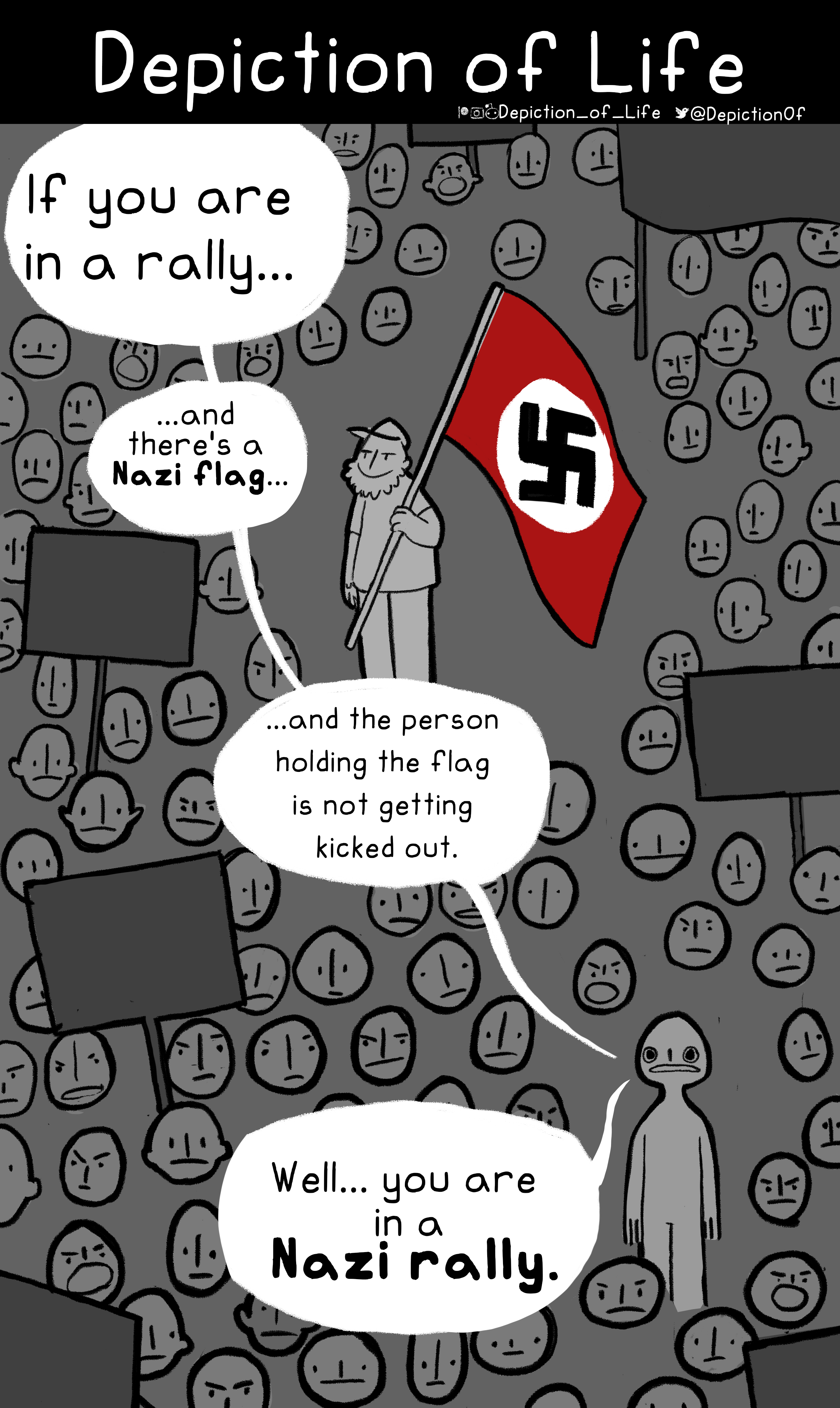

You’re forgetting the part where they had an option to disable this fuckery, and then proceeded to move it twice - exposing containers to everyone by default.
I had to clean up compromised services twice because of it.


You’re forgetting the part where they had an option to disable this fuckery, and then proceeded to move it twice - exposing containers to everyone by default.
I had to clean up compromised services twice because of it.
Your readline config sucks because the default sucks.
Add this to your .inputrc:
"\e[A": history-search-backward
"\e[B": history-search-forward


Google Docs is the worst IDE ever


BGP isnt just Turing complete, It’s Cthulhu complete


real men write their code one bit at a time with a laser pointer and a fiber optic network cable
Or you could just use zig which is better at compiling C than C (the second it supports the espressif chips I’m never touching C again)


I get very far by just keeping a set of folders for each piece of equipment in a git repo.
Pictures, etc, and sometimes the PDF manual if I bother.
The difficult part here is being consistent over time - making sure you mark down when you bought things, serial numbers, etc. a proper website/app will force you to do this, but there is flexibility in having whatever convention you like most
Strongly agree. A guide for dead simple setups would be incredibly useful (e.g. gsuite as idp, oauth for a single app).
It took me a few days to get that basic setup working, and a few days more to improve it. But once it was up, it was rock solid.
Keycloak might seem a little daunting to start with, but is basically glue between your idp (ldap) and whatever apps need to authenticate.
DOGE is not meant to cut spending. It is to systemically root out opposition within the executive branch and promote the business interests of Trump, Musk, and their cadre.
This is a distraction to keep you occupied while they do something far worse.


Many cloud providers (the cheap ones in particular) will put patches on top of the base distro, so sometimes root always gets a password. Even for Ubuntu.
There are ways around this, like proper cloud-init support, but not exactly beginner friendly.


Throughout my career, I have used (in no particular order)
Switching your muscle memory takes a long time, which is why you have things like spacemacs, or different keybind presets for almost all of these editors.
There is more value in understanding how to extend and customize your editor than in searching for a new one. Use whatever your workplace provides the best support for, and then customize it from there.
How many tokens fit in your context window?


Agree. The vast majority of people at those protests do not support Hamas as an organization and certainly not their methods. I simply believe they’ll be accusing people at the rallies that did have Hamas/Hezbollah flags of guilt by association.



Yes. The narrow case is that if you express support for a designated foreign terrorist organization that is grounds for denying your visa, or revoking your status. So if you are on a student visa and went to a protest wearing a hamas headband and carrying the flag then you’ll end up on a plane out of the US.
Where it gets iffy is the question about people who showed up to a protest and didn’t know or see or agree with the hamas flags being flown there


Why choose self as the exemplar? It may be the “purest”, but the list isn’t based on “purest” or pascal would be the exemplar of structured languages.
At the very least, improve readability by moving the disclaimer from the last sentence of the section to the first.


I don’t think we’re having the same conversation.
This EO is about going back over the visa documents for people who entered legally and reviewing them based on a changed standard.
The article is badly written with a sensationalized headline. The EO is written in standard legalese, and only related tangentially to the article. H1Bs likely don’t need to worry too much, but postdocs on that visa who went to a protest may need to reconsider their political activity. The fact that CAIR is quoted should give you a hint as to how this EO is expected to be applied - towards international students on F1 visas - specifically those who have taken part of campus demonstrations involving symbols from foreign terrorist organizations (Hamas flag, Hezbollah flags, etc).
Beyond that, it may be used as a stick against postdocs working on politically charged topics like climate change.


Understanding the context and motivations of the administration is critical in planning how to survive the next four years.
Ignore it at your own peril.


So the actual EO doesn’t call out H1B at all, so I’m guessing this is sensationalized as H1B is the most “visible” visa in recent news.
The context for this is likely the Moroccan national who recently committed a terror attack in Israel. He had a green card and that was supposedly part of the decision to grant him entry as a tourist to Israel.
That having been said, this will likely result in some international students getting deported whether deserved or not. Semi-intended consequences is what I’d call them.
Clearly your gender field is a boolean. Which means it can be either true, false, null, or undefined. Except in javascript where for some reason it can sometimes be NaN, but only when you try to compare two people.
this could be better if it used subdomains to an evil extent - extract the main domain intended and use that:
google.com => google.phishy.pc-helper.xyz/whatever-bullshit-key-they-need
Bonus points if it works for any subdomain.
Extra bonus points for a subdomain that includes https and www (e.g. https.www.google.com.phishy.pc-helper.xyz)